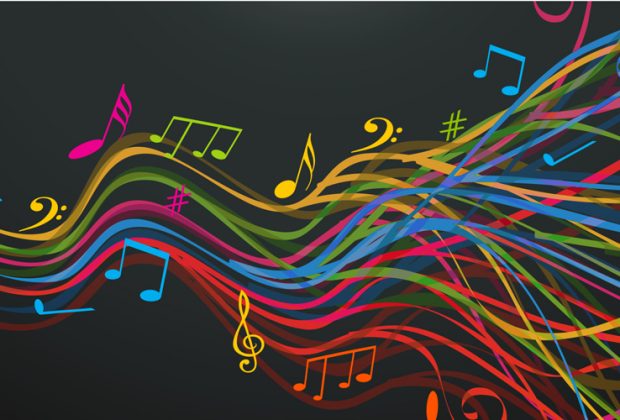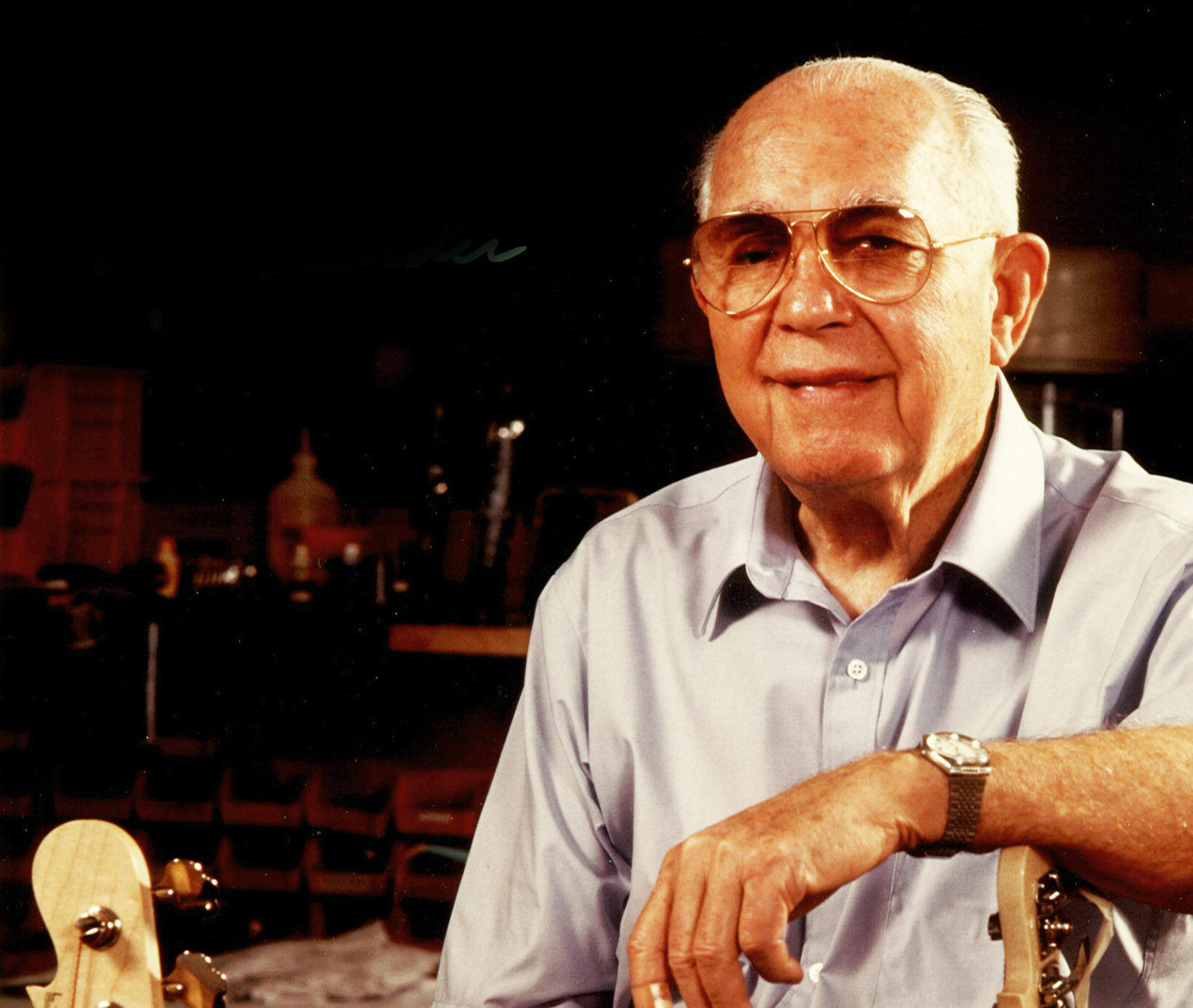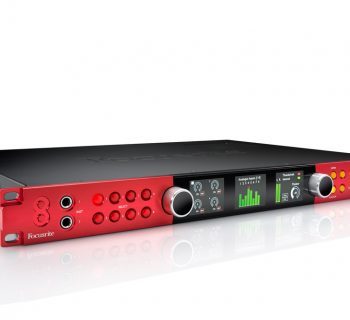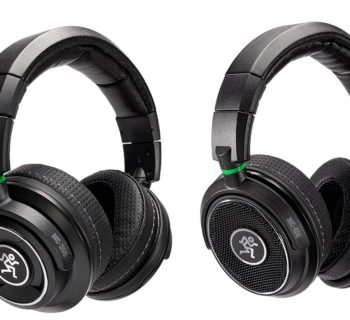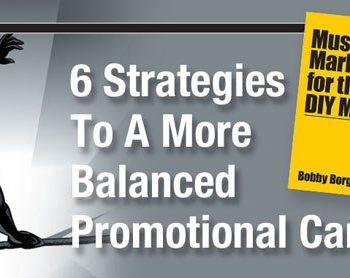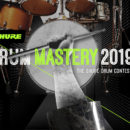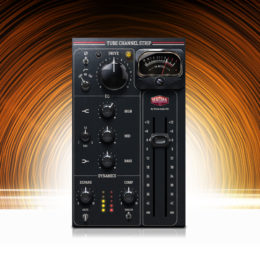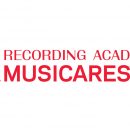Music publishing is easily one of the most important aspects of the music business—but also one of the most misunderstood. To begin to understand what music publishing is and how it works, the first thing you need to understand is what copyright is and how it pertains to music.
Copyright
Copyright in its most basic form is how you prove ownership of a “work.” A “work” can be anything from a screenplay, a book, a piece of art, or in a musician’s case, a song. A work is considered protected under copyright law when it is fixed in a tangible form of expression. Meaning, when you write it down, record it, or print it out, in that moment it becomes protected and belongs to you. And will belong to you for the rest of your life plus seventy years. After which it becomes what’s known as public domain.
When a work becomes public domain, anyone can recreate and distribute it without having to obtain permission. Music such as Beethoven, Mozart, and Bach are all considered public domain. However, what you cannot do is sample another artist’s recording of a piece of music; while the song may be public domain, the recording may not be. This is because there is another copyright at play with the sound recording of a work.
When dealing with music and copyright it’s important to understand that there are two copyrights involved; the first is the song you write, (the “song itself”). The second is the recording of the song, sometimes referred to as the “master.” If you write and record your own music, congratulations you own both copyrights. If you’re signed to a label, or someone paid for your recordings, chances are that they own the master.
Master Use License
A quick sidenote about the master recording. If you want to license your music for a movie, television show, or advertisement, you will need to obtain a master use license as well as a sync license (see below). If you own your own masters, this is relatively easy. If you have signed some form of record deal, the label will have control of it. The fee for usage of the master will typically go to the owner of the recording as well.
Sync Licenses
The other type of license needed for film, television, advertising, and video games is known as a sync license. Synchronization or sync is the process of combining music with some form of moving imagery. These licenses are worked out between your music publisher and the producer or music supervisor of a project.
The rates for a sync license vary depending on a few factors, such as how popular your song is, how it will be used within the project (background, main title, end credits, etc.), or how much of the song they use (just the verse or the entire work).
The music publisher will collect these fees and distribute them to the songwriters, usually for a negotiated fee.
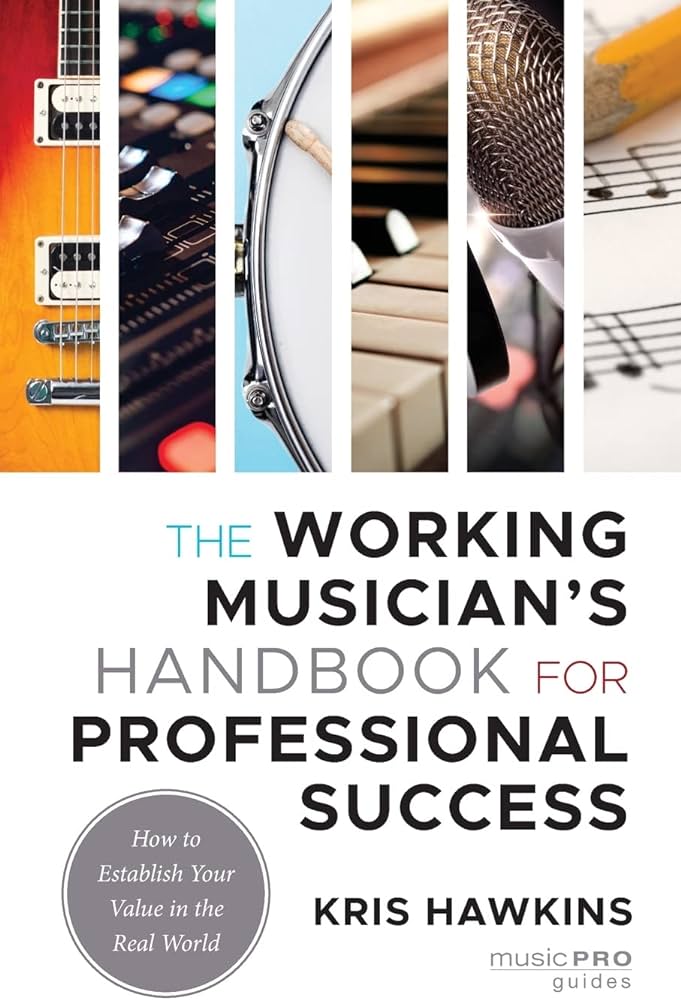
What is Considered a Music Copyright
Copyright with music typically refers to the melody and the lyric. A beat, chord progression, or rhythm isn’t considered protected, although recent lawsuits have challenged this idea. More specifically, the “Blurred Lines” v. “Got to Give it Up” lawsuit, where it was determined that “Blurred Lines” did infringe on the copyright of Marvin Gaye’s “Got to Give it Up.” Even though there was no melody or lyric overlap.
Because of this ruling, a huge number of lawsuits have been filed against major artists like Katy Perry, Taylor Swift, and most recently Ed Sheeran, making the longstanding rule of melody and lyric only a little grayer.
Co-writes and Copyright
If you are collaborating with other songwriters or writing with your band, the copyright and ownership is normally split evenly among all of the writers. Some situations, like if you’re a new writer collaborating with an established artist, you may receive a smaller share of the ownership. This should be discussed before-hand to avoid any miscommunications or hurt feelings.
What happens if you co-write a song with someone you have a falling out with, and you want to use your lyrics to write another song? Due to the way copyright law works, the moment you put your lyrics to someone’s music, it is considered “fixed in a tangible form” and cannot be undone.
I’ll put it this way: If you are baking a cake with your friend, they bring the eggs, and you bring the flour. Once you combine the two ingredients you’ve created something new. And it’s impossible to take your ingredients back once they have been “baked” together.
It’s important that you understand this concept when deciding to collaborate with another writer.
Music Publishers
So, what is a music publisher and what do they do? A music publisher is an entity that represents your music. The main job of a publisher is to get your music earning you money commercially. A good publisher will work to get your music placed in things like movies, television shows, video games, commercials, etc. Which will then generate revenue for the songwriters (and the publishers) via licenses and royalties.
A publisher will also handle the administration of your music, which is: registering your songs with your performing rights organization (ASCAP, BMI, etc.), negotiating and collecting any licensing fees or royalties (both performance and mechanical) for getting your music used commercially, handling distribution and reproduction rights, as well as handling any printed sheet music that may be created.
Do you need a Publisher?
Short answer: yes, absolutely.
Long answer: kinda, but still yes.
While a publisher is generally a third party that represents your music, you can act as your own publisher. And I would advise you to do so until you are represented by a third party. To do this, when you register with your performing rights organization you have the option to sign up as either a “writer” or a “publisher.” I advise you to do both. Currently, the cost to do so is negligible.
The downside of acting as your own publisher is that you become responsible for all the administrative tasks that a publisher would perform. Unless you’re well versed in all the ins and outs of how music publishing and licenses work, this could be slightly overwhelming. Even if you don’t fully understand everything, you still should sign up. You can always assign your publishing to a third party later. But it’s best to be ready should an opportunity arise.
Co-writers and Multiple Publishers
Chances are, if you are co-writing with different writers, they will have their own publishing company that represents them. In some cases, it can be as many as five or six publishers associated with one song. As you can imagine, this could cause issues with licensing opportunities as all the publishers need to agree to give permission.
The way this is normally solved is one publisher is chosen as the administrator to act on behalf of all the other publishers and make decisions in the best interests of all involved. This should be decided on sooner than later. Otherwise, it’s like herding cats.
Performing Rights Organizations
As mentioned previously, a performing rights organization, or PRO, is an organization that will collect any performance royalties from your music when it is played or performed in a public venue. This could be television, radio, clubs, or the grocery store. Every time your music is publicly broadcast, your PRO will collect the royalty money and distribute it equally among the writers and publishers the song is registered to. The rates of the royalties vary depending on the medium that the music is being used for. (That’s a discussion for another article.) Every country has at least one PRO that provides this service. In the U.S. the big three are ASCAP, BMI, and SESAC. If you are a songwriter or composer and you want to make a living from your music, you need to be registered with a PRO. ASCAP and BMI are available to anyone who wants to join. SESAC is the outlier, as you must be invited. If this is all new to you, and you are writing your own music, I urge you to sign up as soon as you can.
Royalty Distribution
Here’s a quick breakdown of how royalties are distributed through your PRO. The first thing to understand is that a song in and of itself is worth 100% (200% if you’re with BMI) of the performance royalties it generates. However, that 100% when collected is split into two equal shares known as the “writers share” and the “publishers share.” What this means is that the money earned from the use of the song will be split evenly between the writer and the publisher. So, if $1,000 in performance royalties is collected, $500 will go to the writer’s share, while the other $500 will go to the publisher’s share.
If you are self-publishing your music, you will receive all the royalties. If you have signed a publishing deal, this may change depending on the deal and any advances you may receive.
Mechanical Royalties
While performance royalties are collected and allocated by your PRO, another type of royalty you should familiarize yourself with is the mechanical royalty.
A mechanical royalty is generated though the reproduction of a song via either the creation and sale of a physical copy, such as vinyl or a CD (not so much anymore), or digital formats such as streaming and digital downloads.
These royalties are collected and paid to the publisher by organizations such as The Harry Fox Agency and Songtrust. The Mechanical Licensing Collective (MLC) is now the only entity that collects digital audio mechanical royalties.
With streaming, there has been some debate about what is considered a mechanical royalty vs. a performance royalty. And who collects what. To understand it almost requires an advanced degree in mathematics. Here’s an oversimplified explanation:
Permanent downloads of a song generate a mechanical royalty. Non-interactive streaming, meaning you don’t choose the music but listen to an online radio station like Pandora, generates a performance royalty. Interactive streams and limited downloads (on platforms like Spotify, Apple Music) generate both a performance royalty collected by your PRO and a mechanical royalty collected by The MLC. If you are an independent artist, you can sign up to collect your digital audio mechanical royalties directly from The MLC or use an administrator or distributor (like Tunecore or CD Baby) to collect your streaming mechanicals on your behalf.
Publishing Deals
A publishing deal is when you assign a portion of your copyright (publisher’s share) to a third-party. Your new publisher will now handle administrative tasks, such as registering your songs or securing licensing for film, television, or video games. They will also collect any royalties that your music may be entitled to, such as performance royalties and mechanical royalties from physical sales and streaming.
Signing a publishing deal is like giving power of attorney to the publisher to make decisions on your behalf. Which is why it’s very important to know two things; 1.) What kind of deal are you signing, its terms and conditions, and 2.) Is the publisher willing to put in the effort to exploit your music?
There are a few different types of publishing deals that can be offered, so it is important for you to know what you’re getting into before you sign your rights away.
Admin Deals
An admin deal is the type of deal that concerns handling all the administrative tasks of your music. For a small percentage of the income, your administrators will collect royalties and help with licenses. This is normally around 5% - 20% of the revenue.
Admin deals typically don’t come with an advance (although some may). They also won’t provide some of the creative services that a co-publishing deal or a traditional publishing deal would provide. They are, however, a good choice if you want to retain full ownership of your copyrights. These deals are most common with well-established writers and artists who don’t need as much promotion for their music as, say, an up-and-coming writer.
Co-Publishing Deals
A co-publishing deal (also referred to as a songwriter deal) is when you assign a portion of your copyright to a third party. Most co-pub deals take half of your publisher’s share. You will retain all of your writer’s share and the other half of your publisher’s share, thus giving you an opportunity to make more money off any royalties your music makes. You may also receive an advance against any future royalties. More on this later.
Be aware that some publishing deals also have an admin fee baked into the deal. Which could mean that you are paying an extra 10% of your royalty for the publisher to administer your music. This is sometimes written into the fine print of the deal. You can always ask a potential publisher if they charge an admin fee on top of your earnings.
Traditional Publishing Deal
With a traditional publishing deal, you will assign the entirety of your publishers share to the publisher, giving them full control over your copyright. These types of deals are usually accompanied by a much larger advance.
With both types of these deals, the publisher will perform all of the duties that you would receive with an admin deal, with the added benefit of providing creative services. These services could be anything from pitching your music to advertisers, television shows, and video games. Larger publishers will have a greater ability to get your music in more places than you could do on your own. You may also receive a substantial advance for your deal, as well. These are all good things about signing a deal like this. However, there is a trade-off when you take such a deal.
Advances
While receiving a large sum of money upfront for your publishing may seem enticing, one thing most people don’t understand is that an advance on a publishing deal is essentially like a loan. And that loan has to be recouped. The publisher is taking a chance that they will make their advance back from future royalties your music generates. The way this happens is through the collection of your royalties. More specifically, your writer’s share.
If you receive a $100,000 advance from your publisher, the publisher will use the royalties from your writers share to pay down the advance. What this means is that you will not earn any new money from your music until your advance is fully recouped. The good news is that unlike a personal loan, if you fail to recoup your advance, you’re not obligated to pay it back out of pocket, unless you sign a very bad deal.
Failure to recoup, though, could harm your chances of receiving another publishing deal in the future. It will ultimately boil down to two things. One, is having a consistent and marketable collection of music and two is how hard the publisher works to get your music to generate income.
Quotas
Some publishing deals will require you to deliver a quota of songs per each year that you are signed with them. The average is between 10 to 20 songs. However, co-writes typically will only count for the percentage of ownership that you have. If you co-write a song and have only 50% ownership, then that only counts as half a song towards your quota.
Music Libraries and Publishing
Music libraries have been around for decades. Recently, however, there has been a sharp uptick in the number of libraries available and the content of their catalogs.
A music library is an entity that has hundreds of songs and instrumental pieces for use for sync purposes. If you decide to become affiliated with a music library, they will act as your defacto publisher, handling any licenses needed and collecting money from royalties and sync fees.
In most music library deals, they will take all of the publishing and split any sync fees with the writers associated with the tracks being used. Some deals may vary, depending on the library.
It is always important to look over any agreements you may be presented with and ask questions about anything you don’t understand. If they are unwilling to give you a straight answer, it may be time to find another deal.
How Do You Get a Publishing Deal?
Easier said than done. If you’re writing with an established artist or producer, and getting your songs released commercially or are earning royalties on your songs already via ads, video games and the like, that is a huge advantage that most publishers would jump at.
However, if you are still trying to establish yourself as a writer or an artist, the three most important things you will need are great songs—a lot of them—and the connections. If you’re serious about getting a deal, you will need to write every day. Know that not everything you write will be good. Regardless, finish even the bad ones, as it opens up the channel for the good ones to come through. Collaborate with as many writers and artists as you can. It’s a numbers game.
For reference, while choosing the songs to record for Michael Jackson’s classic album Thriller, Quincy Jones listened to 800 songs to get nine. Six of which became top 10.
For the connections, you need to be where the publishers are. While the internet is a great resource to find opportunities, joining societies like The SCL (Society of Composers and Lyricists), ASCAP, or BMI and going to their in-person events can open lots of potential doors for your career.
And In Conclusion…
Music publishing is an onion with many complex layers to it. My hope is that this article has helped shed some light on some of the more misunderstood concepts. If you’re interested in more information about making a living as a musician, check out my book; The Working Musician’s Handbook for Professional Success.
KRIS HAWKINS is an EMMY winning music producer, award winning educator, and author of The Working Musician’s Handbook for Professional Success. See krishawkinsmusic.com/book

